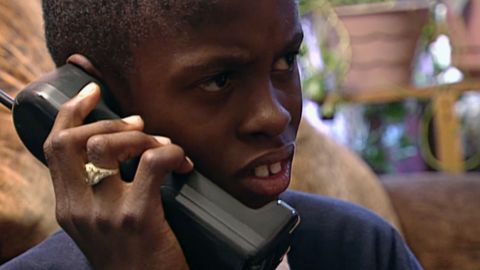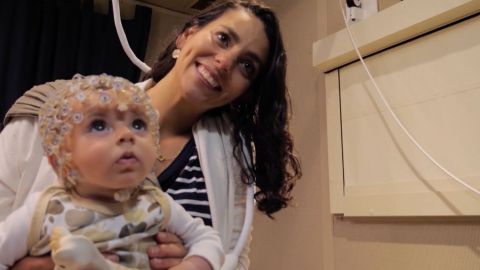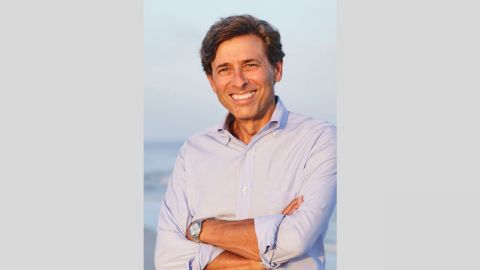Meet the Experts Behind BROKEN PLACES
BROKEN PLACES interweaves poignant longitudinal narratives with commentary from a few nationally renowned experts in the fields of neurobiology and child development. These experts weigh in on the far-reaching impact of childhood adversity as well as the key relationships and interventions that either failed our subjects or helped them overcome the obstacles they faced.
 Viewers hear from Dr. Jack P. Shonkoff, a pediatrician and the Director of the Center on the Developing Child at Harvard University, who explains how exciting new developments in imaging, neurobiology, and genetics now offer a clearer picture of the myriad ways that childhood adversity affects brain architecture, early development, and later-life outcomes.
Viewers hear from Dr. Jack P. Shonkoff, a pediatrician and the Director of the Center on the Developing Child at Harvard University, who explains how exciting new developments in imaging, neurobiology, and genetics now offer a clearer picture of the myriad ways that childhood adversity affects brain architecture, early development, and later-life outcomes.
 Dr. Rahil Briggs, the National Director of HealthySteps, is enrolling at-risk families into a model program which provides behavioral health and parenting interventions for young parents and their children during routine pediatric visits. This prevention model now operates in 130 pediatric clinics in 20 states.
Dr. Rahil Briggs, the National Director of HealthySteps, is enrolling at-risk families into a model program which provides behavioral health and parenting interventions for young parents and their children during routine pediatric visits. This prevention model now operates in 130 pediatric clinics in 20 states.
 We interview another visionary pediatrician, Dr. Nadine Burke Harris, who founded the Center for Youth Wellness, and is leading a national effort to revolutionize pediatric medicine and transform the way society responds to kids exposed to significant adverse childhood experiences and toxic stress.
We interview another visionary pediatrician, Dr. Nadine Burke Harris, who founded the Center for Youth Wellness, and is leading a national effort to revolutionize pediatric medicine and transform the way society responds to kids exposed to significant adverse childhood experiences and toxic stress.
 Another program that has successfully demonstrated that early childhood interventions can be brought to scale is the Harlem Children’s Zone. We interview Geoffrey Canada, who achieved such impressive results over the past 30 years that other cities, like Minneapolis, have eagerly adapted the Harlem Children’s Zone model.
Another program that has successfully demonstrated that early childhood interventions can be brought to scale is the Harlem Children’s Zone. We interview Geoffrey Canada, who achieved such impressive results over the past 30 years that other cities, like Minneapolis, have eagerly adapted the Harlem Children’s Zone model.
 We also interview Dr. Thomas Boyce, the Chief of the Division of Developmental Medicine at UCSF, who explains that children have different genetic susceptibility to adversity. Dr. Boyce labeled resilient kids dandelions, because like the flower, they are able to survive and even thrive in a harsh environment. In contrast, Dr. Boyce described highly sensitive kids as orchids, because they need a great deal of nurturing in order to thrive.
We also interview Dr. Thomas Boyce, the Chief of the Division of Developmental Medicine at UCSF, who explains that children have different genetic susceptibility to adversity. Dr. Boyce labeled resilient kids dandelions, because like the flower, they are able to survive and even thrive in a harsh environment. In contrast, Dr. Boyce described highly sensitive kids as orchids, because they need a great deal of nurturing in order to thrive.
 We travel to the north side of Minneapolis, where we meet Sondra Samuels, who runs NAZ, the Northside Achievement Zone. We illustrate how NAZ’s two-generation approach uses family and academic coaches to promote healthy child development and school readiness. We also capture an emotional scene as proud parents come forward with their 3-year-old babies to receive their graduation certificates during a stirring College-Bound Babies ceremony.
We travel to the north side of Minneapolis, where we meet Sondra Samuels, who runs NAZ, the Northside Achievement Zone. We illustrate how NAZ’s two-generation approach uses family and academic coaches to promote healthy child development and school readiness. We also capture an emotional scene as proud parents come forward with their 3-year-old babies to receive their graduation certificates during a stirring College-Bound Babies ceremony.
 In Minneapolis, viewers also meet economist Art Rolnick, a Senior Fellow at the Humphrey School of Public Affairs, whose data shows that every dollar invested in high-quality early childhood intervention for disadvantaged children pays an inflation-adjusted 18 percent annual rate of return.
In Minneapolis, viewers also meet economist Art Rolnick, a Senior Fellow at the Humphrey School of Public Affairs, whose data shows that every dollar invested in high-quality early childhood intervention for disadvantaged children pays an inflation-adjusted 18 percent annual rate of return.





